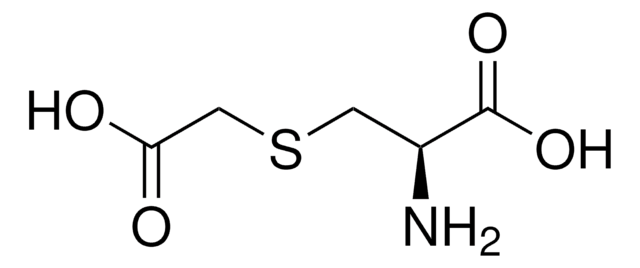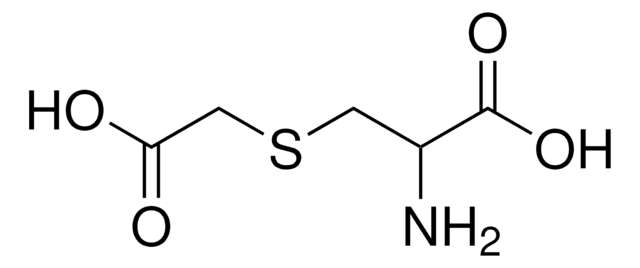C0470000
Carbocisteine
European Pharmacopoeia (EP) Reference Standard
Synonym(s):
S-Carboxymethyl-L-cysteine, 3-carboxymethylthio-L-alanine
About This Item
Recommended Products
grade
pharmaceutical primary standard
API family
carbocisteine
manufacturer/tradename
EDQM
application(s)
pharmaceutical (small molecule)
format
neat
SMILES string
N[C@@H](CSCC(O)=O)C(O)=O
InChI
1S/C5H9NO4S/c6-3(5(9)10)1-11-2-4(7)8/h3H,1-2,6H2,(H,7,8)(H,9,10)/t3-/m0/s1
InChI key
GBFLZEXEOZUWRN-VKHMYHEASA-N
Looking for similar products? Visit Product Comparison Guide
General description
Application
Packaging
Other Notes
Storage Class Code
11 - Combustible Solids
WGK
WGK 2
Flash Point(F)
Not applicable
Flash Point(C)
Not applicable
Choose from one of the most recent versions:
Certificates of Analysis (COA)
Sorry, we don't have COAs for this product available online at this time.
If you need assistance, please contact Customer Support.
Already Own This Product?
Find documentation for the products that you have recently purchased in the Document Library.
Our team of scientists has experience in all areas of research including Life Science, Material Science, Chemical Synthesis, Chromatography, Analytical and many others.
Contact Technical Service








